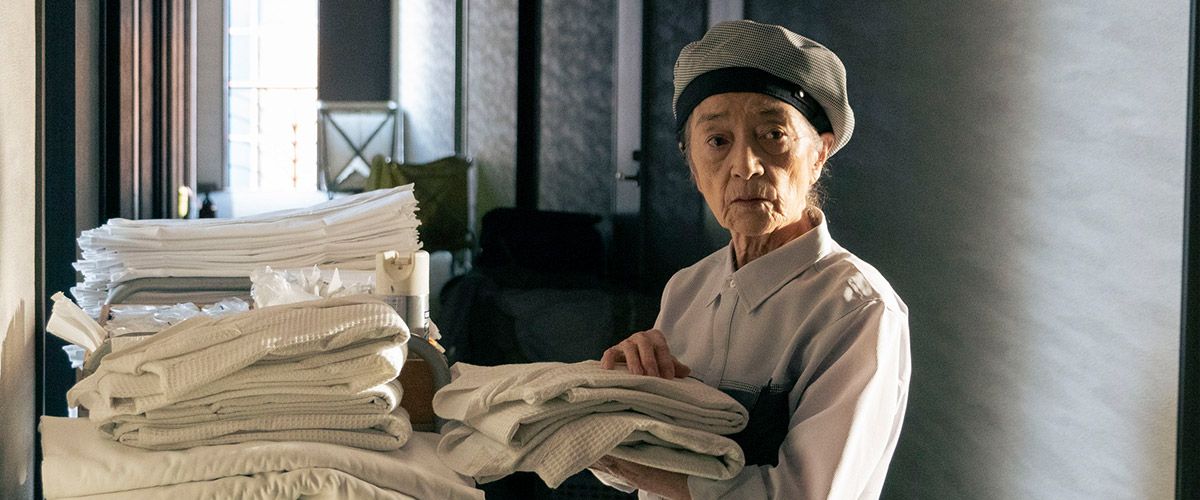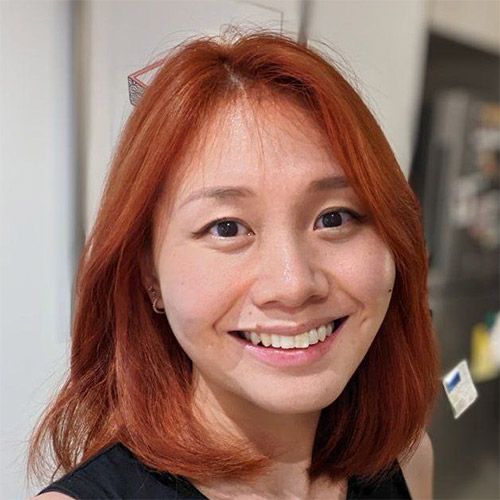The most unassuming reflections of everyday life can reveal the most chilling sides of our society, and that is exactly what director Chie Hayakawa sought to show in her film Plan 75.
Hayakawa (Ten Years Japan, Niagara) paints a parallel world in Japan where those above the age of 75 are encouraged, through the state-backed campaign Plan 75, to end their lives to ease the financial burden on society. Presented to the seniors as a choice, those who volunteer to die by the government’s hand are given a thousand dollars to splurge on their final days.
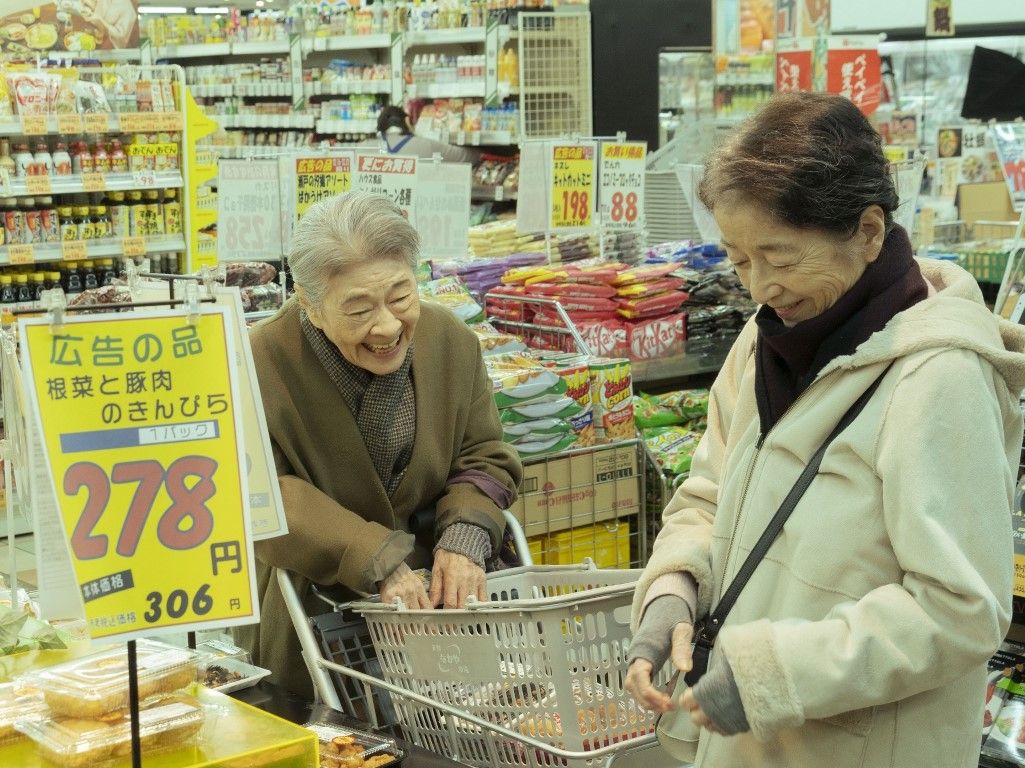
Government workers set up registration booths in public parks, ladling out hot meals at night and gently cajoling seniors to sign up. A 15-minute-a-day chatline provides a listening ear to those who have registered their death dates, and when the day comes, seniors check into pristine facilities that gas them to expiration.
It’s a chilling reality with elements that echo our present world, if you look close enough.
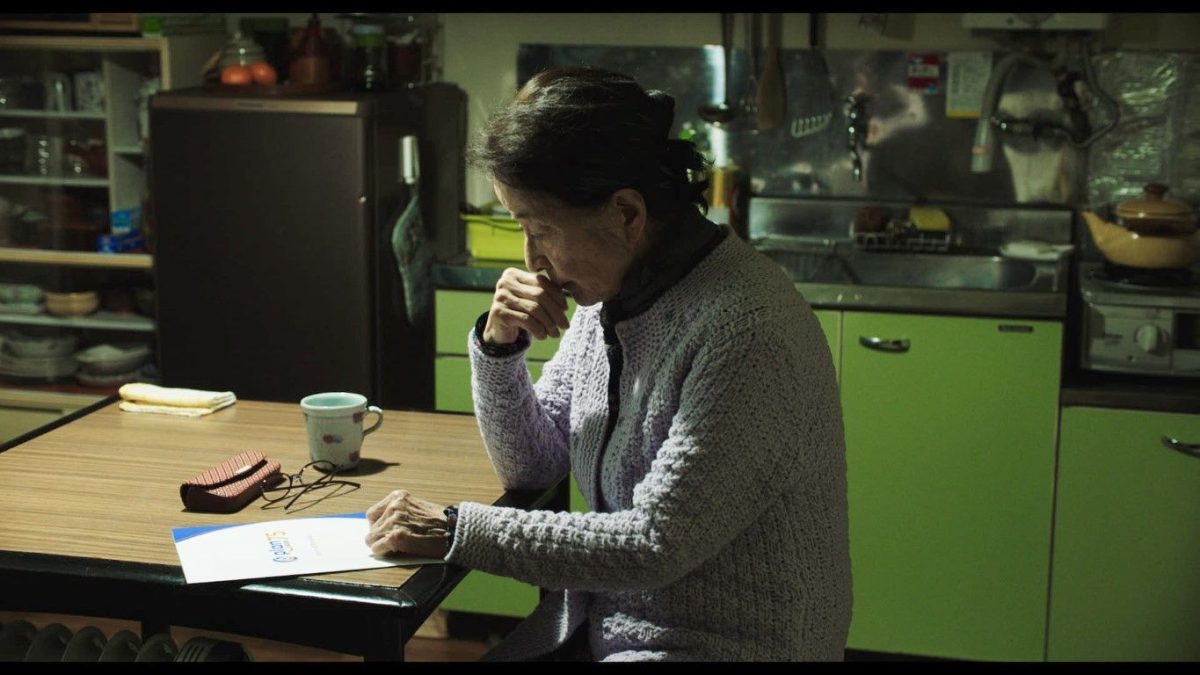
The movie starts with a literal bang — an elderly is shot by a young person, who calls his deed a sacrifice for the world’s most rapidly ageing society. It is reminiscent of the 2016 Sagamihara stabbings, where 19 disabled people were killed by a man who said he “had to do it for the sake of society”.
Although participation in Plan 75 is voluntary, the delicately directed scenes quickly reveal that it really isn’t.
78-year-old Michi, played by Chieko Baisho (Howl’s Moving Castle, Tora-san, Wish You Were Here) is introduced as an independent woman living on her own, but is soon retrenched after an elderly colleague suffers a fall at work. Facing eviction from her apartment, Michi is asked to fork out a two-year deposit to rent a new place because of her age, which is an extraordinary request and something she can’t afford.
In our present world, these are familiar situations that we can rationally agree with. In Hayakawa’s parallel reality, this marginalisation makes even the most independent of seniors question their value and agree that it’s better to die than be a burden.
The strength of the movie lies in its reveal of how insidious the intolerance of senior citizens in modern societies is.
The intolerance revealed highlights a point that’s been proven throughout history — that extermination of a demographic can easily be normalised, institutionalised by the state, and go unquestioned — without anyone feeling like they are commiting a crime against human dignity.
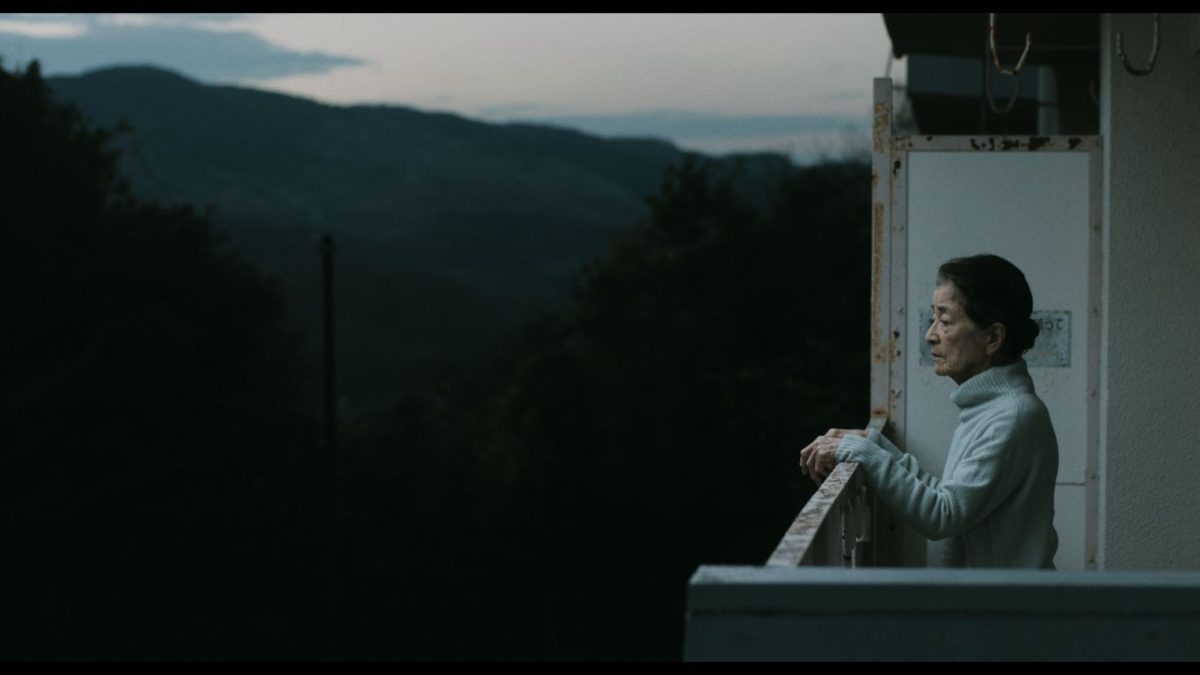
Several other characters introduced play a key role in revealing different facets of Plan 75’s consequences. Hiromi (Hayato Isomura, A Family, Tokyo Revengers) is a government official who works for Plan 75, and discovers that his uncle’s solitude has driven him to volunteering for death.
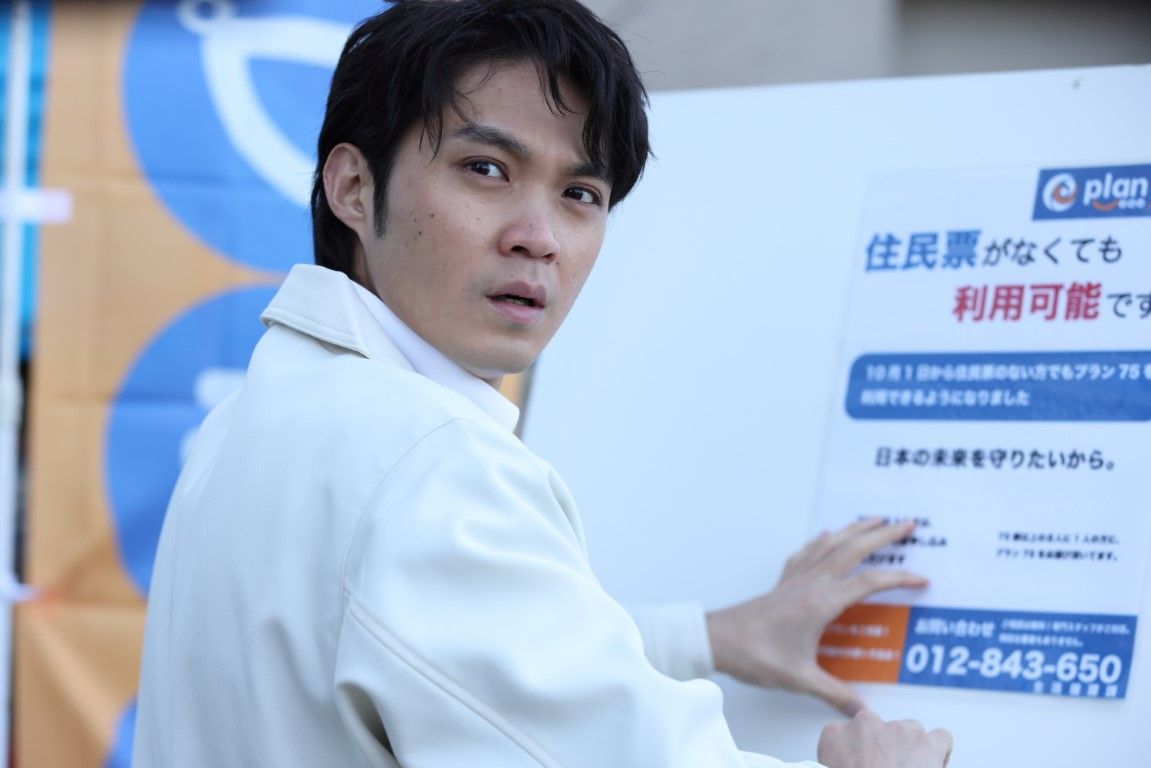
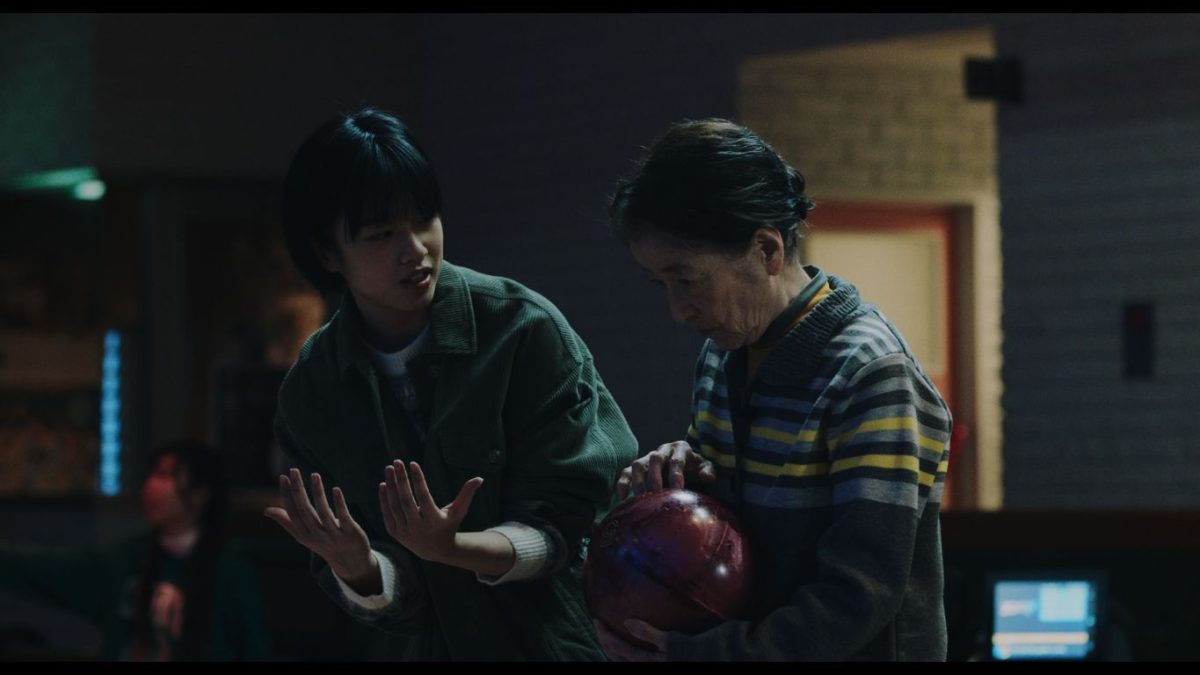

Yoko (Yuumi Kawai, Just Remembering) plays is a chatline operator who inadvertently becomes Michi’s final brush with humanity, while Maria (Stefanie Arianne, Melancholic, Oh Lucy!) is a foreign worker who finds herself a small gear in the massive, dehumanising machinery of euthanising old people.
Throughout the movie, Hayakawa orchestrates an unsettling feeling; there is an ominous vibe, an expectation for something drastic to happen — either for the seniors to get round up, or for an explicit hate crime to occur to Michi.
But there is no climax, no dramatisation, no bold statement about humanity made. Nobody but her life circumstances within a society that disregards seniors forces Michi to volunteer for state-sanctioned death. The pacing of the movie reflects the muted rhythm of everyday life.
There isn’t a hero introduced in the movie; every character represents a dimension of society that’s just playing its expected role.
But in the bleak dystopian reality Hayakawa presents, the drive to seek a solution to ease an ageing population results in the mass extermination of senior citizens that is neither questioned nor challenged, all for the “good” of society.
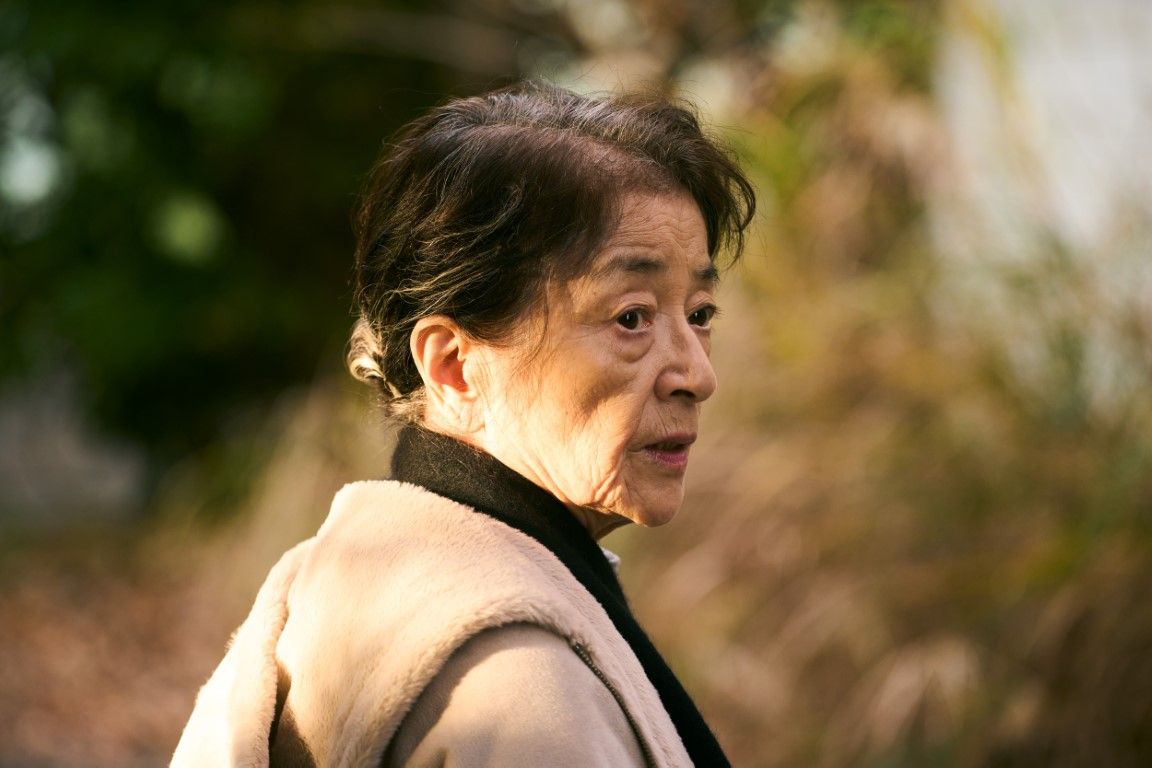
It’s extreme realism. And while the movie provides brief sparks of humanity in its bleak portrayal of a society that sees little value in the elderly, the movie provides no resolution either.
How can a society deal with an ageing population in a most beneficial way? You either leave the cinema confused, or extremely unsettled.
Which may just be Hayakawa’s intention, to highlight a lack of empathy in today’s world. Plan 75 is a piece of work that leaves much food for thought, especially in a modern society that often operates too rationally to remember to treat the aging community with dignity.
Plan 75 is screening now at The Projector.
GEEK REVIEW SCORE
Summary
Plan 75 presents a chilling parallel reality set in the world’s most rapidly ageing society. While predicated on the extreme idea of state-sanctioned extermination of senior citizens, don’t expect any drama or bold statement about humanity. Its muted scenes might feel dull at times, so have your popcorn at the ready.
Overall
7.3/10-
Story - 6/10
6/10
-
Direction - 8/10
8/10
-
Characterisation - 8/10
8/10
-
Geek Satisfaction - 7/10
7/10

